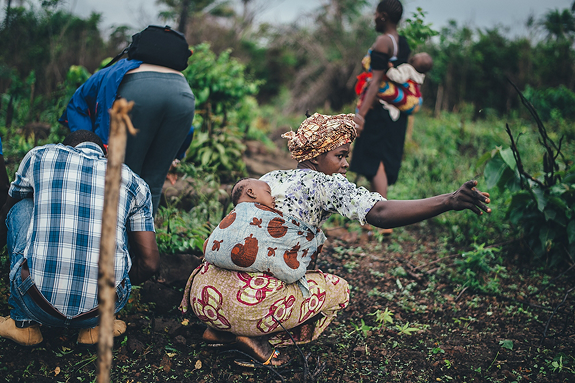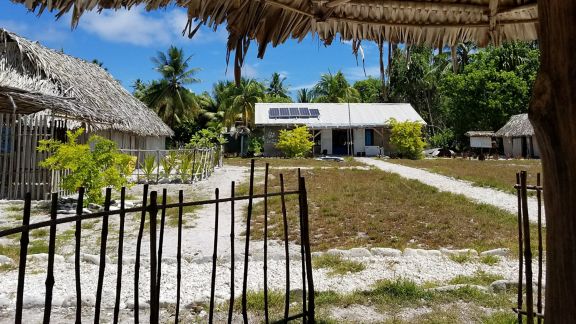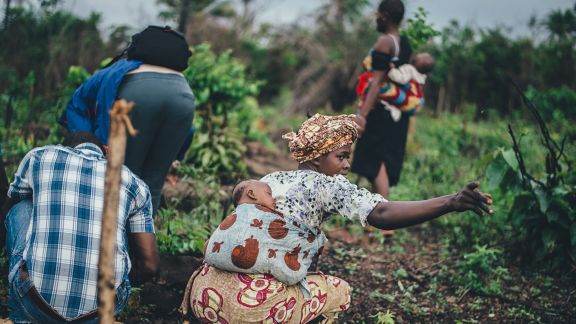Sexual Violence Portfolio Performance Evaluation: Insights from 19 Countries

Problem
USAID needed evidence of what works in sexual violence programming to inform future funding and programming decisions.
The U.S. Agency for International Development (USAID)’s Gender Equality and Women’s Empowerment Hub (GenDev) funded a portfolio of four activity clusters meant to reduce sexual violence (SV) in more than 60 countries. Despite this level of programming, no systematic evidence was available on some activities to understand which interventions worked, the challenges faced by local partners, the existing knowledge gaps in sexual violence, and the recommended improvements to attain intended results. The four activity clusters were:
- Better Together Challenge (BTC)/Reto Juntos es Mejor, which sought innovative ways to support Venezuelan migrants and their host countries
- Collective Action to Reduce Sexual Violence (CARE-SV), a program that awarded small grants to new, local, underutilized organizations working to reduce sexual violence to help them raise awareness of and deal with vicarious trauma experienced by their staff
- Resilient, Inclusive & Sustainable Environments (RISE) Challenge, which sought to reduce sexual violence in environmental programming at both the community and institutional levels
- Women’s Economic Empowerment (WEE), which aims to overcome barriers and spur women’s participation in the workforce while creating greater sexual violence awareness
Each activity cluster faced questions of context and in some cases intersectionality that influenced their implementation and results.
USAID needed a comprehensive approach to assess each activity cluster in its own context and the portfolio elements at large.
Solution
NORC conducted a comprehensive evaluation of activity cluster effectiveness, relevance, and sustainability.
NORC collaborated with USAID, its implementation partners, grantees, and a team of consultants across 20 activities in 19 countries to create an evaluation framework that addressed cross-cutting and cluster-specific questions. Our evaluation addressed questions related to effectiveness, local relevance, and sustainability. It also addressed the extent to which the portfolio aligned with the U.S. Government’s official sexual violence guiding principles and identified local and regional good practices and lessons learned.
NORC conducted fieldwork in:
- Benin
- Bosnia and Herzegovina
- Botswana
- Burundi
- Colombia
- Democratic Republic of Congo
- Fiji
- Guatemala
- Guyana
- Kenya
- Lesotho
- Nigeria
- North Macedonia
- Panama
- Peru
- Nigeria
- Trinidad & Tobago
- Uganda
- Vietnam
Our expertise on vulnerable populations and sexual violence and key input from local subject-matter experts were invaluable to our instrument design and data collection. Primary data collection included 129 key informant interviews, 30 focus group discussions, four web-based surveys, three face-to-face surveys, and a review of over 300 documents.
Throughout the evaluation, we validated our methodology, conclusions, and findings with stakeholders at the local level to ensure the evidence was appropriate and relevant to the implementation context.
Result
Our evaluation identified lessons learned, best practices, and actionable recommendations that will inform funding and programming decisions.
We grounded our recommendations on findings from across the activity clusters and portfolio-level analysis, focusing on actionable items for USAID and implementation partners to use as input for learning and future programming, including:
- Developing a theory of change to guide sexual violence investments
- Adapting interventions to a complex systems approach
- Revising funding assumptions
- Increasing community engagement in formative assessments and program design
- Delineating sexual violence accountability in the context of implementation
- Requiring exit plans in each workplan
NORC’s evaluation reports, infographics, and policy briefs with findings for each activity cluster, in addition to an overarching portfolio performance evaluation report, provide a rich source of evidence and information for future programming.
NORC held several dissemination events, including a workshop to discuss recommendations with USAID staff and implementation partners, to widely share this knowledge with key audiences.
Related Tags
Project Leads
-
Ritu Nayyar-Stone
Principal Research ScientistProject Director -
Ingrid Rojas
Senior Research ScientistEvaluation Specialist and Project Manager -
Cathy Zimmerman
Senior FellowGender-Based Violence & Gender Expert -
Carlos Echeverría-Estrada
Research ScientistEvaluation Lead, Better Together Challenge Activity -
Ridhi Sahai
Research ScientistEvaluation Co-Lead, Women’s Economic Empowerment Activity












